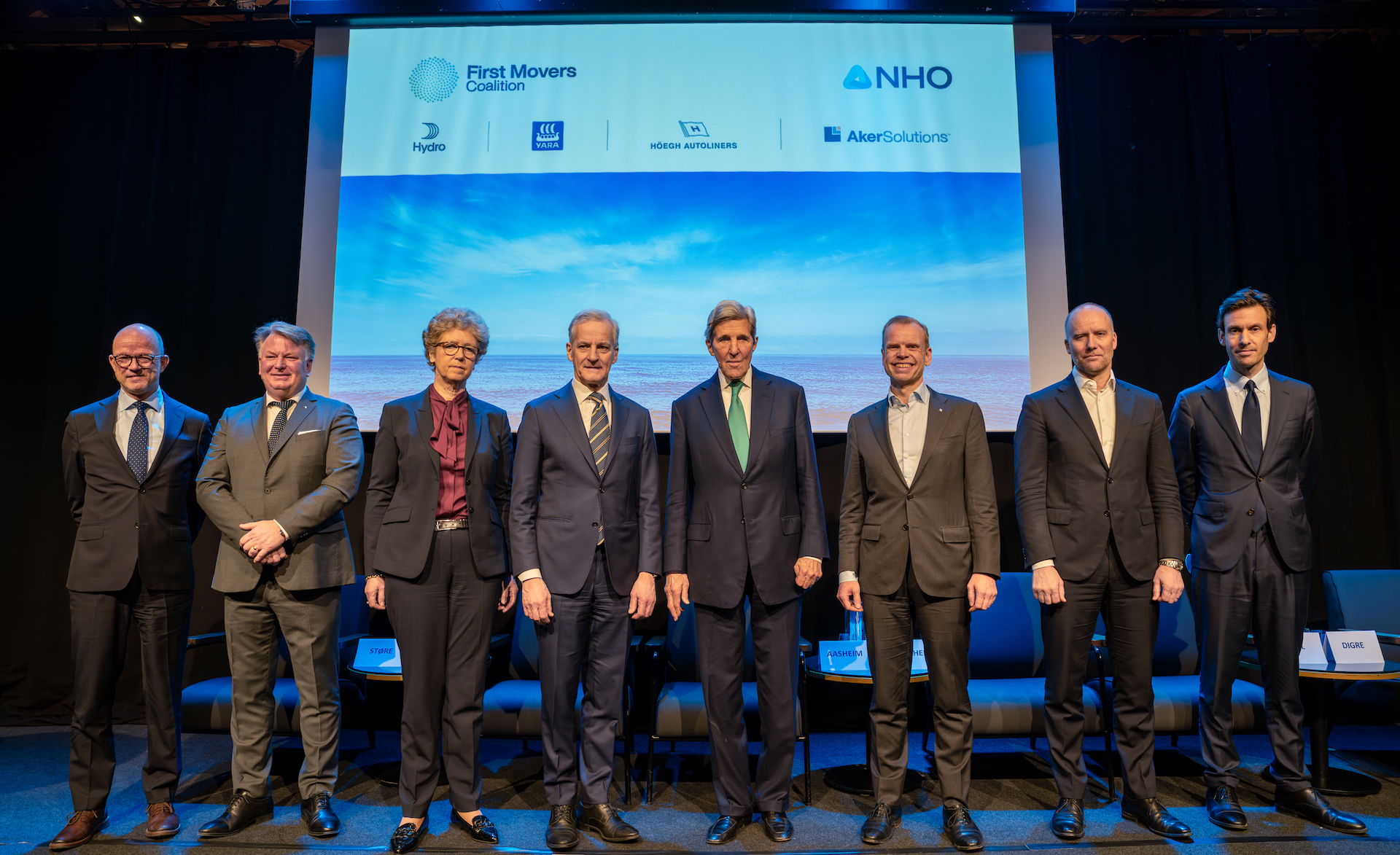John Kerry in Oslo; says Norway is key to decarbonizing hard to abate sectors
First movers coalittion 2 Oslo

Today, John Kerry, U.S. Special Presidential Envoy for Climate met with Norwegian Prime Minister, Jonas Gahr Støre, and Norwegian members of the First Movers Coalition (FMC) in Oslo to discuss decarbonization of the world's heavy-emitting sectors.
“Taken together, the First Movers Coalition represents a $16 billion demand signal for goods in 2030 - the largest private demand signal for clean technologies in history. These companies are making commitments to change the way we procure some of our most basic goods: steel, aluminum, concrete, as well as jet fuel and shipping. And our friends in Norway have been first movers even within this group, taking concrete and tangible actions to meet these commitments,” said John Kerry, U.S. Special Presidential Envoy for Climate.
FMC was launched at COP26 to help decarbonize the world's heavy-emitting sectors via private sector demand for decarbonization technology. Two years on, it has become a leading global coalition of 96 companies spearheading a multitude of collaborative partnerships and new business models. Seven Norwegian companies are members of FMC: Yara International, which was one of the founding members, Hydro, Aker Biomarine, Choose, Höegh Autoliners, Norsk Stål and Norge Mining.
“The green shift is not about subsidies, it’s about investments. We must collaborate across entire value chains, and between both private and public sectors. Many solutions to decarbonize already exist, but demand and supply must be developed simultaneously. That is why Yara is working to realize the world’s first clean ammonia-powered container ship, Yara Eyde, whilst also working to produce and use low-carbon ammonia to decarbonize shipping fuel, the food industry and other energy-intensive industries,” said Svein Tore Holsether, CEO of Yara and NHO President.
FMC targets sectors that do not have cost-competitive energy alternatives to fossil fuels: steel, cement, aluminium, chemicals, shipping, aviation, and trucking, as well as carbon capture. Combined, these sectors represent more than one third of global carbon emissions.
Collectively, member companies have made 120 commitments for climate action, which represent a demand for emerging climate technologies at $16 billion annually by 2030. The use of these technologies will represent 31 million tons (Mt) CO2 equivalents in annual emission reductions. By comparison, total annual emissions in Norway were 48,9 million tons in 2022.
Photo caption: From the left: Ole Erik Almlid, Director General of the Confederation of Norwegian Enterprise (NHO), Sebjørn Dahl, COO Höegh Autoliners, Hilde Merete Aasheim, CEO of Hydro, Norwegian Prime Minister Jonas Gahr Støre, John Kerry, U.S. Special Presidential Envoy for Climate, Svein Tore Holsether, CEO of Yara, Kjetel Digre, CEO of Aker Solutions, Rob van Riet, Interim Head, First Movers Coalition.
Contact information
Tonje Næss
Senior media relations manager, Yara International ASA
M: +47 408 44 647
E: [email protected]
About Yara
Yara grows knowledge to responsibly feed the world and protect the planet. Supporting our vision of a world without hunger and a planet respected, we pursue a strategy of sustainable value growth, promoting climate-friendly crop nutrition and zero-emission energy solutions. Yara’s ambition is focused on growing a nature positive food future that creates value for our customers, shareholders and society at large and delivers a more sustainable food value chain.
To achieve our ambition, we have taken the lead in developing digital farming tools for precision farming and work closely with partners throughout the food value chain to improve the efficiency and sustainability of food production. Through our focus on clean ammonia production, we aim to enable the hydrogen economy, driving a green transition of shipping, fertilizer production and other energy intensive industries.
Founded in 1905 to solve the emerging famine in Europe, Yara has established a unique position as the industry’s only global crop nutrition company. We operate an integrated business model with around 17,000 employees and operations in over 60 countries, with a proven track record of strong returns. In 2023, Yara reported revenues of USD 15.5 billion.
Attachment


